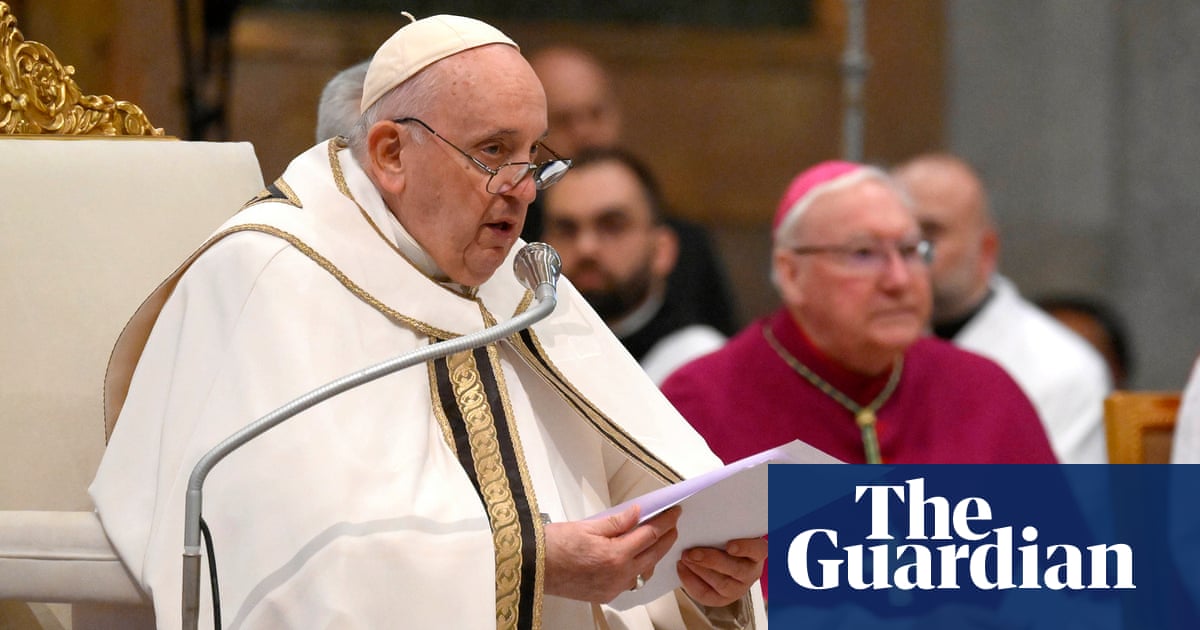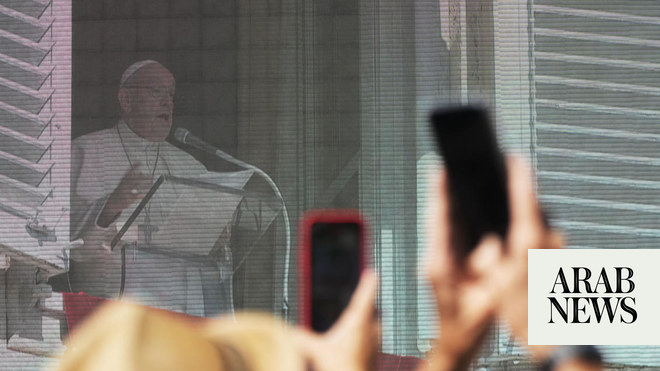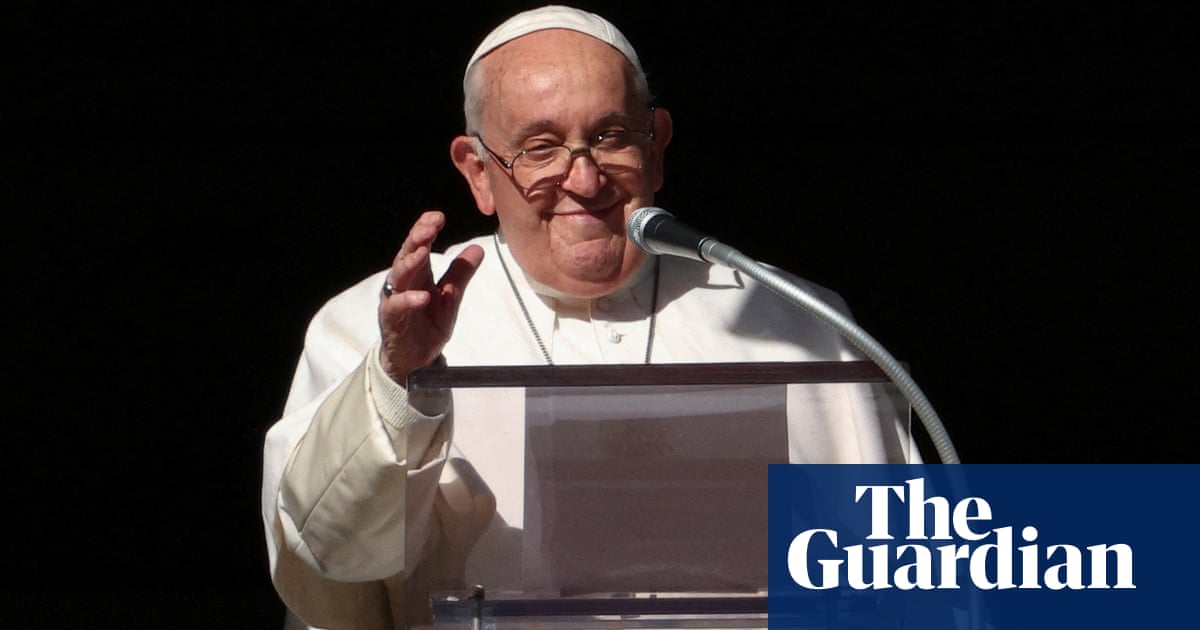
Pope Francis has criticised laws that criminalise homosexuality as “unjust”, saying God loves all his children just as they are, and calling on Catholic bishops who support the laws to welcome LGBTQ+ people into the church.
“Being homosexual isn’t a crime,” Francis said on Tuesday in an interview.
Francis acknowledged that Catholic bishops in some parts of the world support laws that criminalise homosexuality or discriminate against LGBTQ+ people, and he himself referred to the issue in terms of “sin”. But he attributed such attitudes to cultural backgrounds and said bishops in particular need to undergo a process of change to recognise the dignity of everyone.
“These bishops have to have a process of conversion,” he said, adding that they should apply “tenderness, please, as God has, for each one of us”.
Francis’s comments, which were hailed by gay rights advocates as a milestone, are the first uttered by a pope about such laws. But they are also consistent with his overall approach to LGBTQ+ people and his belief that the Catholic Church should welcome everyone and not discriminate.
Some 67 countries or jurisdictions worldwide criminalise consensual same-sex sexual activity, 11 of which can or do impose the death penalty, according to The Human Dignity Trust, which works to end such laws. Experts say even where the laws are not enforced, they contribute to harassment, stigmatisation and violence against LGBTQ+ people.
In the US, more than a dozen states still have anti-sodomy laws on the books, despite a 2003 supreme court ruling declaring them unconstitutional. Gay rights advocates say the antiquated laws are used to justify harassment, and point to new legislation, such as the “Don’t say gay” law in Florida, which forbids instruction on sexual orientation and gender identity from kindergarten up to third grade, as evidence of continued efforts to marginalise LGBTQ+ people.
The UN has repeatedly called for an end to laws criminalising homosexuality outright, saying they violate rights to privacy and freedom from discrimination and are a breach of countries’ obligations under international law to protect the human rights of all people, regardless of their sexual orientation or gender identity.
Declaring such laws “unjust”, Francis said the Catholic church can and should work to put an end to them. “It must do this. It must do this,” he said.
Francis quoted the Catholic catechism in saying gay people must be welcomed and respected, and should not be marginalised or discriminated against.
“We are all children of God, and God loves us as we are and for the strength that each of us fights for our dignity,” Francis said.
Francis’s remarks come ahead of a trip to Africa, where such laws are common, as they are in the Middle East. Many date from British colonial times or are inspired by Islamic law. Some Catholic bishops have strongly upheld them as consistent with Vatican teaching, while others have called for them to be overturned as a violation of basic human dignity.
On Tuesday, Francis said there needed to be a distinction between a crime and a sin with regard to homosexuality. Church teaching holds that homosexual acts are sinful, or “intrinsically disordered”, but that gay people must be treated with dignity and respect.
Francis articulated the position: “It’s not a crime. Yes, but it’s a sin. Fine, but first let’s distinguish between a sin and a crime.”
“It’s also a sin to lack charity with one another,” he added.
Francis has not changed the church’s teaching, which has long riled gay Catholics. But he has made reaching out to LGBTQ+ people a hallmark of his papacy.
The pope’s comments didn’t specifically address transgender or nonbinary people, just homosexuality, but advocates of greater LGBTQ+ inclusion in the Catholic Church hailed the pope’s comments as a momentous advance.
“His historic statement should send a message to world leaders and millions of Catholics around the world: LGBTQ people deserve to live in a world without violence and condemnation, and more kindness and understanding,” said Sarah Kate Ellis, president and CEO of the US-based advocacy group Glaad.












